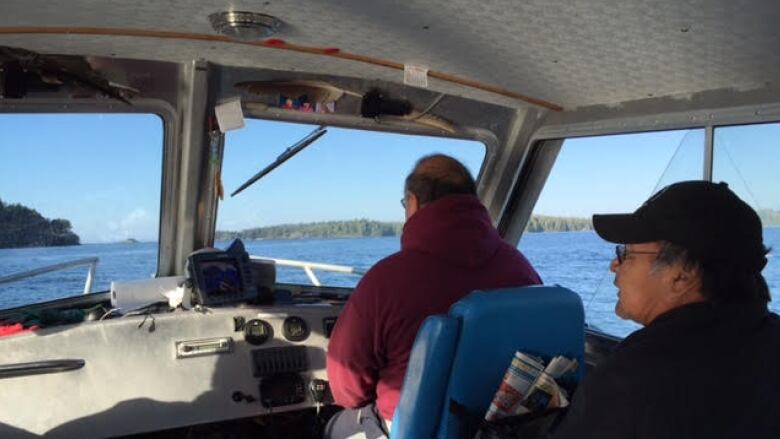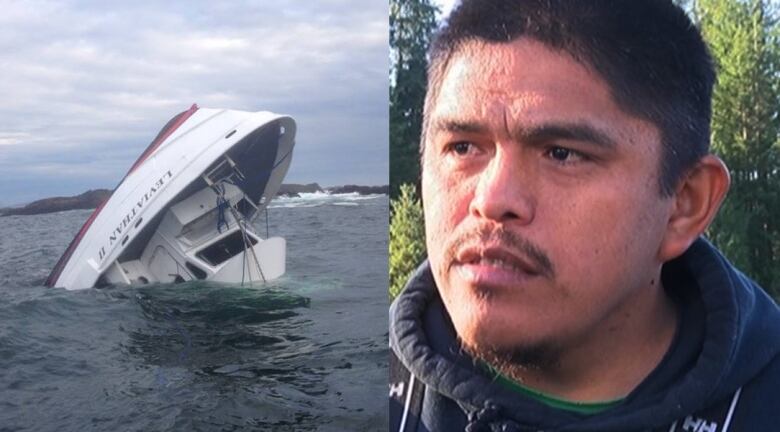MV Leviathan II tragedy: Official rescue role for First Nations urged
Marine safety expert says First Nations' desire to help could save 'economic future'

A marine safety expert says coastal First Nations should be given an official role in the province's search and rescue services.
Advocates say the capsizing of whale-watching boat, theMVLeviathan II, off the Tofino coast and the resulting rescue shows how crucial First Nations communitiesare in emergencies on the water.
Two Ahousaht fishermen were the only peoplewho spotted a rocket flare shot off the capsized boat and rushed to the scene, triggering a rescue effort that pulled 21 survivors fromfrigid B.C. waters.
"We've got all of the talent to move forward. The Leviathian II sinking and the good work by Ken [Brown] seeing that flare -- we got to take that and put the flare up into Canada's search and rescue response and enhance that," said Joe Spears, manager director of the Horseshoe Bay Marine Group in West Vancouver.

The current structure for marine response is too 'fragmented', according to Spears, but he's confident the political will is there to change it.
"I'm pretty confident with the political leadership and the will with the communities to do this."
Economic impact
Not only would including First Nations in an official capacity save lives, but it's also critical for the economy, says Spears.
"Our economic future depends on it," he said.
He suggests putting on demonstration projects to showcase Canada's search and rescue abilities in the water.
Our economic future depends on it.- Joe Spears, manager director of the Horseshoe Bay Marine Group in West Vancouver
"When you look at eco-tourism, we're bringing people to a very rugged and dangerous coastline," he said. "We're letting them loose, and then when something happens, we shouldn't be thinking, well we'll think of something as it occurs."
A decentralized approach
Spears says each First Nations community has different services to offer, including those for non-emergency situations. He describes what he calls a "buffet of potential capabilities" in Canada, including fisheries enforcement, oil-spill response, and scientific data collection.
And then we look at every community and say, what do you want to do?- Joe Spears, manager director of the Horseshoe Bay Marine Group in West Vancouver
"We need to get the big picture right and I'm confident that we can do that. And then we look at every community and say, what do you want to do?" he said.
Spears also pointed to the importance of re-opening of several coast guard stations that the government shut down in recent years.
"We've got to decentralize that -- we've got to re-open these facilities."
Justin Trudeau ordered Minister of Fisheries and Oceans, Hunter Tootoo, to reopen Vancouver's Kitsilano Coast Guard stationon Friday.
To listen to the full audio, click the link labelledMarine safety expert calls for official role for coastal First Nations in search and rescue operations.












_(720p).jpg)


 OFFICIAL HD MUSIC VIDEO.jpg)
.jpg)



























































































